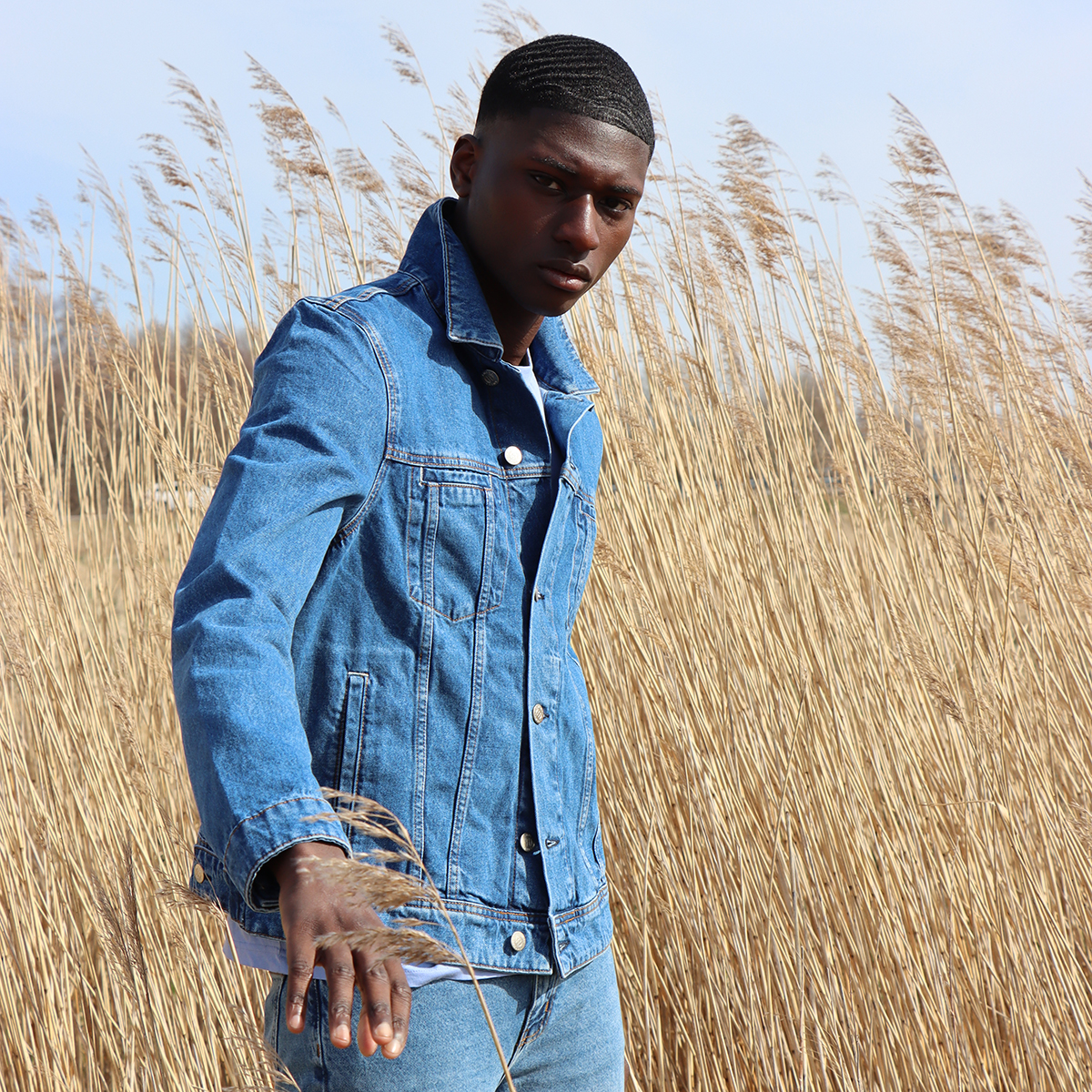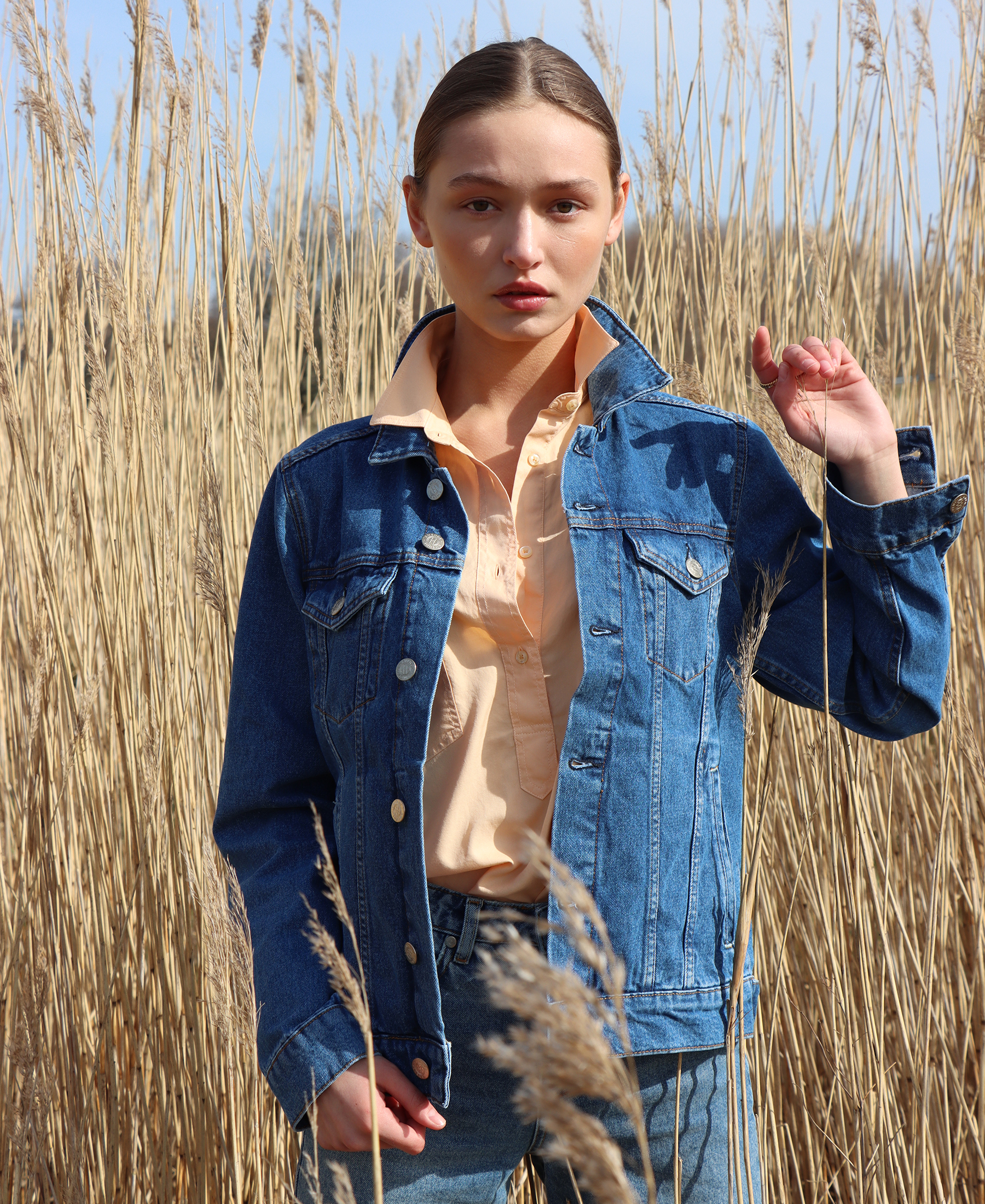DENIM & POETRY
DENIM & POETRY
“Nature Poetry” is defined simply by poet Wendell Berry as “poetry that considers nature as subject matter and inspiration” (www.poets.org). During the the Industrial Revolution, when science and rampant economic and technological growth spurned the ravenous consumption of natural resources, a counterculture of poets was born: The Romantics. Nature was the primary muse for the Romantics. The poet, philosopher, and preacher, Ralph Waldo Emerson, who was a seminal figure of the American Romantic movement, wrote in his formative essay Nature, “The happiest man is he who learns from nature the lesson of worship.” The Romantics spiritualized and exalted the relationship between the natural world and humans. The Romantic movement inspired the Western line of Nature poetry movement all the way to the present Ecopoetics movement, which directly addresses ecology, natural disasters, and climate change.
For our 2020 collections we explore the ecological and emotional dimensions of one of our favorite fabrics, denim, through the lens of Nature poetry. By considering denim, a fabric derived from cotton, a flowering shrub, with Nature poetry, we aim to bring attention to, appreciation for, and a “lesson of worship” for the natural elements that compose this often taken-for-granted textile.

“Nature” is what we see—
By Emily Dickinson
“Nature” is what we see—
The Hill—the Afternoon—
Squirrel—Eclipse—the Bumble bee—
Nay—Nature is Heaven—
Nature is what we hear—
The Bobolink—the Sea—
Thunder—the Cricket—
Nay—Nature is Harmony—
Nature is what we know—
Yet have no art to say—
So impotent Our Wisdom is
To her Simplicity.
To Make a Prairie
By Emily Dickinson
To make a prairie takes a clover and one bee,
One clover, and a bee.
And revery.
The revery alone will do,
If bees are few

November Cotton Flower
By Jean Toomer
Boll-weevil’s coming, and the winter’s cold,
Made cotton-stalks looks rusty, seasons old,
And cotton, scarce as any southern snow,
Was vanishing; the branch, so pinched and slow,
Failed in its function as the autumn rake;
Drouth fighting soil had caused the soil to take
All water from the streams; dead birds were found
In wells a hundred feet below the ground—
Such was the season when the flower bloomed.
Old folks were startled, and it soon assumed
Significance. Superstition saw
Something it had never seen before:
Brown eyes that loved without a trace of fear,
Beauty so sudden for that time of year.

The Pasture
By Robert Frost
I’m going out to clean the pasture spring;
I’ll only stop to rake the leaves away
(And wait to watch the water clear, I may):
I sha’n’t be gone long.—You come too.
I’m going out to fetch the little calf
That’s standing by the mother. It’s so young,
It totters when she licks it with her tongue.
I sha’n’t be gone long.—You come too

Miracles
By Walt Whitman
Why, who makes much of a miracle?
As to me I know of nothing else but miracles,
Whether I walk the streets of Manhattan,
Or dart my sight over the roofs of houses toward the sky,
Or wade with naked feet along the beach just in the edge of the water,
Or stand under trees in the woods,
Or talk by day with any one I love, or sleep in the bed at night with any one I love,
Or sit at table at dinner with the rest,
Or look at strangers opposite me riding in the car,
Or watch honey-bees busy around the hive of a summer forenoon,
Or animals feeding in the fields,
Or birds, or the wonderfulness of insects in the air,
Or the wonderfulness of the sundown, or of stars shining so quiet and bright,
Or the exquisite delicate thin curve of the new moon in spring;
These with the rest, one and all, are to me miracles,
The whole referring, yet each distinct and in its place.
To me every hour of the light and dark is a miracle,
Every cubic inch of space is a miracle,
Every square yard of the surface of the earth is spread with the same,
Every foot of the interior swarms with the same.
To me the sea is a continual miracle,
The fishes that swim—the rocks—the motion of the waves—the
ships with men in them,
What stranger miracles are there?
